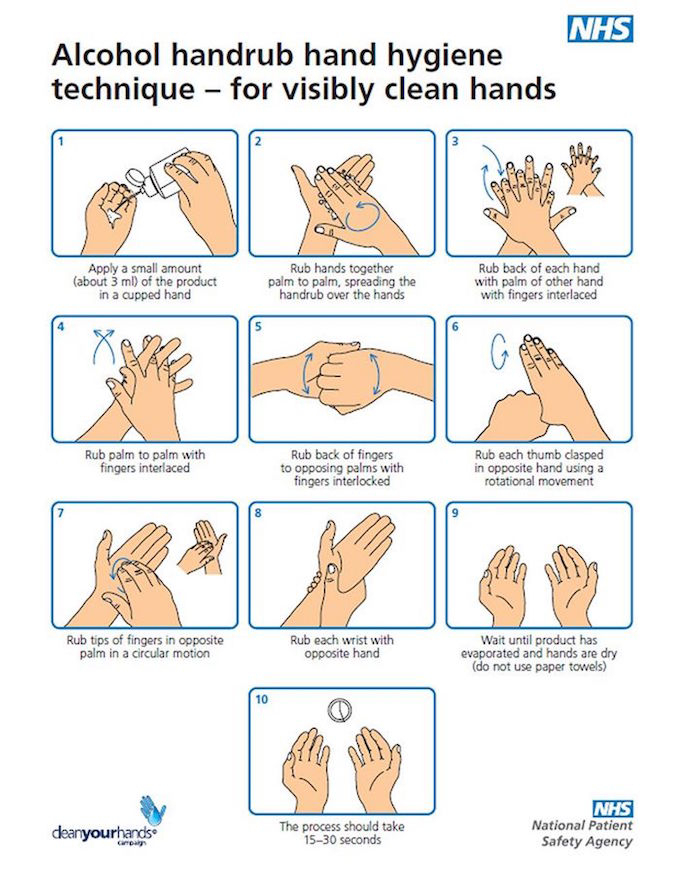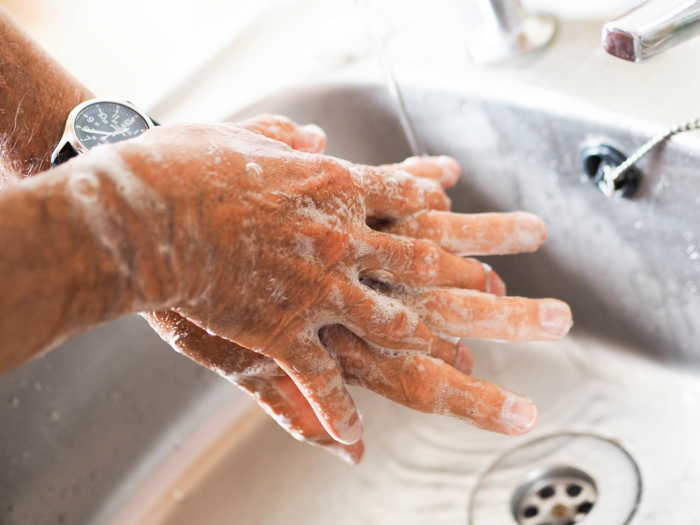Amid lockdowns, mask-wearing and social distancing, handwashing’s part to play in the fight against Covid-19 is easily forgotten.
It is something that many of us do instinctively, almost as muscle memory, several times a day. But rarely has it been as important as it has in the last six months.
Amidst the arsenal of weapons against coronavirus – masks, self-isolation and social distancing – one has been particularly easy to overlook: handwashing.
As the coronavirus emerged as a worldwide health emergency in February, health agencies scrambled to advise people how to protect themselves from the new virus. One suggestion – repeated day after day, on news bulletins, adverts and expert interviews – was to wash hands with soap, in warm water, for at least 20 seconds.
The World Health Organization published a graphic – widely memed since – showing the correct way to wash hands: a how-to familiar to anyone who has ever worked in a bar or a restaurant.
Six months on, the confused global picture over spikes and localised lockdowns – like the curfew recently imposed on Melbourne in Australia – has pushed the handwashing advice to the margins. Amid the growing backlash in some quarters against wearing masks and face coverings, this other silver bullet against coronavirus infection has been edged out of the spotlight. One Ethiopian observational study, still to be peer-reviewed, found less than 1% of more than 1,000 people visiting hospitals washed their hands in the correct way. But has the advice changed? (Read about why some people don’t wash their hands.)
Not at all, say the experts. If anything, they have doubled down on its efficacy.
Thomas Gilbert, an associate professor of chemistry and chemical biology at Northeastern University in Boston, Massachusetts, says coronavirus’s chemical make-up can be disrupted by nothing more specialised than cheap soap and warm water.
“These viruses have membranes that surround the genetic particles that are called lipid membranes, because they have an oily, greasy structure,” he says. “It’s this kind of structure than be neutralised by soap and water.” Dissolving this outer “envelope” breaks the virus cell up, and the genetic material – the RNA which hijacks human cells to make copies of the virus – is swept away and destroyed.

“I’ve heard of nothing yet to make the handwashing time shorter,” says Gilbert. “What you want to be doing is wetting your hands, getting the soap and working up a proper lather and then rubbing your hands for a good 20 seconds and get into all the nooks and crannies.” This gives enough time, Gilbert says, for the chemical reaction to take place between the lipid membrane and the soap. “There are other benefits – it also allows the soap to do a good job getting rid of the material.” And with warm water, Gilbert adds, all that virus fighting “happens a little quicker”.
Martin Michaelis, a professor of molecular science at the University of Kent in the UK, says water on its own is not enough to disable the virus. “When you have olive oil on your fingers when you’re cooking, it’ very hard to get rid of it with just water,” he says. “You need soap.” When it comes to the coronavirus, soap is needed in the same way “to remove that lipid envelope so that all the virus is deactivated”.
Hand washing’s effectiveness has been somewhat sidelined due to the wide adoption of hand sanitisers, either the small bottles people take with them out of the house or the stations people are asked to use when they enter supermarkets and bars.
It’s not a bad idea to have something like that in your automobile, or inside the front door,” Gilbert says. “These things are good for when you don’t have access to a sink and soap and water. I would always prefer soap and water to hand sanitisers.”
So how often should we still be washing our hands?
Early on in the pandemic, the UK government’s scientific advice was that people should wash their hands every few hours – despite the fact most of the populace was confined to their homes. Gilbert says that’s not really necessary for those who are mostly staying home during the day – though they should, of course, be washing their hands normally after using the toilet, before preparing and prior to eating food.
Those caring for someone who is suffering from Covid-19 – and many other viruses for that matter – will probably want to wash their hands more often, especially if they are coming into contact with objects or surfaces the infected patient has touched or coughed on.
“If you’re at home all day and there’s not 20 strangers running through your house, then washing hands just for the sake of it is not necessary,” he says. Another paper, led by PhD candidate Thi Mui Pham at the University of Utrecht, found immediate handwashing after coming into contact with a possibly infected person or surface was much more effective than washing them at timed intervals.
Some people have turned to anti-viral handwashes, believing them to be more effective than normal soap – and that’s not the case, says Michaelis.
“You don’t need these kind of things at all,” he says. “Most of the anti-microbials on the market are in fact anti-bacterials.” Overuse of these could just be storing up problems for the future too, he warns. “If you have too many anti-bacterials [which don’t work on viruses] in the waste water then you have more chance of bacterial resistance,” he says. “All of the other disinfectants you can use [besides soap]… can cause more environmental concerns and cause more problems with resistant bacteria down the line.”
Washing hands, of course, is a lot easier when you have a reliable water supply to hand. In less developed parts of the world, water is a more precarious resource – and in many of those places, public health standards and living conditions are often less than ideal. In fact, just this month the World Health Organization reported that only two in five schools around the world had adequate handwashing facilities before the coronavirus pandemic hit.
Both Gilbert and Michaelis agree water doesn’t have to be of drinkable quality to be a weapon against coronavirus. “As long as you have soap or something similar, that’s fine. You can swim in water that you can’t drink because of the barrier of your skin,” says Michaelis.
The coronavirus pandemic seems to have had a knock-on effect on the flu season in the first half of 2020, evidence suggests. Without the normal human social contact in the first few months of the year, influenza rates are thought to have plummeted, and with them influenza deaths. For instance, South Africa’s National Institute for Communicable Diseases (NICD) would normally deal with some 700 cases of severe flu between the end of March and August; this year they reported only one.
It’s likely the closure of clinics led to a number being unreported, but low flu cases also shine a light on a possibly other aspect to the pandemic: washing hands more often might be helping to protect us from other diseases as well. Less severe winter outbreaks of flu – a traditional strain on health services in the colder months – could result if our handwashing habit lasts.
“This could be a really good change for the better,” says Michaelis.
BBC
More about: COVID-19
















































